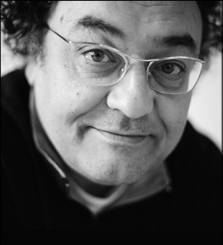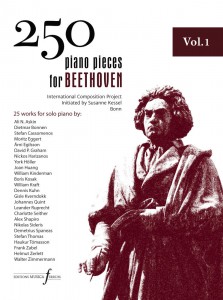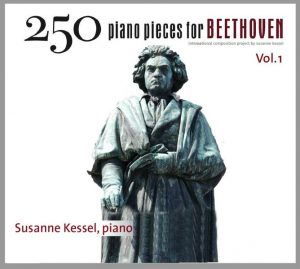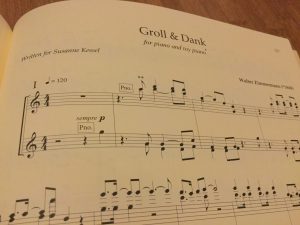Walter Zimmermann (DE) – Groll & Dank
Walter Zimmermann about „Groll & Dank“ (for piano and toy piano)
“Groll & Dank” [resentment and gratitude] are composed like a sequence of folk dances, similar to the 12 counter-dances of Beethoven. However there isn’t a single quote from it. The combined under WoO 14 12 counter-dances were composed during the period of 1791-1801, so that they emerged before “Eroica” Op. 55. The dances take, on average, only a few seconds. Dance No. 5, in E flat major, lets the well known theme of “Eroica” theme sound. The only hidden original Beethoven quote in “Groll & Dank” is taken from the piece which Feldman named “A March to God”. Otherwise the lined up folk dances are transferred by a summation tones of the original set’s branched transparent structure, that is never quoted, but floats around like an illusion. The title “Groll” [resentment] refers to my piano concert exams. I did not pass because I started to improvise in the 3rd movement of “Les Adieux” and “Dank” [gratitude] that I could become a composer then, as I wasn’t fit in being a pianist.”
Notenedition Vol. 1 – hier erhältlich: SHOP
Piano piece „Groll & Dank“ – Aufführungen
7. September 2015 – Uraufführung– Post Tower Lounge, Bonn – Susanne Kessel, Klavier
29. September 2015 – Speicher am Kaufhauskanal, Hamburg – Susanne Kessel, Klavier
23. Februar 2016 – Klavierhaus Klavins, Bonn – Susanne Kessel, Klavier
Walter Zimmermann (*1949)
Walter Zimmermann was born in Schwabach, Franconia. His early studies were focused on the oboe, the violin and the piano. He started composing at the age of 12. He studied composition with Werner Heider in Nuremberg and piano in Heider’s art nova ensemble, between 1968 and 1970. He attended, briefly, the Mauricio Kagel’s New Music Course in Cologne. Simultaneously he studied at the Institute of Sonology, in Utrecht and the Jaap-Kunst Ethnologyy Center (Amsterdam) between 1970-73. He also has computer studies in Hamilton USA, in 1974; ethnological research, gathering folk music, especially from American Indian reservations, 1975-6. Zimmerman founded the Beginner Studio in Cologne in 1977 where he organised concert series until 1984. From 1982 he was the composition teacher at the Liège Conservatoire, taught at Darmstadt Summer Courses from 1982 until 1984, and he held the teaching post at the Royal Conservatoire den Haag in 1988, while from 1990 he was the composition teacher in Karlsruhe. In 1992-93 he was a visiting professor at Folkwang-Hochschule and from 1993 he is a professor of composition at the Berlin Academy of the arts. He has been awarded the City of Cologne Förderpreis, in 1980; ‚Ensemblia‘ first prize, in 1981; Villa Massimo stipendium (Rome), in 1987, Schneider-Schott Prize, in 1989 and the Prix Italia, in 1990, for Die Blinden. He now lives in Berlin and Seidmar (Franconia).
Walter Zimmermann über Ludwig van Beethoven:
„Die erste Begegnung mit Ludwig van Beethoven war, als ich 10 Jahre alt war. Wilhelm Backhaus spielte die Pathétique und andere Sonaten im Amerikahaus Nürnberg, sozusagen unter Quarantäne, da er ja ein im Dritten Reich hochgeschätzter Pianist war. Später machte ich das Experiment, löste sozusagen diese Fama auf, indem ich alle von Backhaus eingespielten Beethovensonaten 16x beschleunigte, um so eine Energiekurve von Beethovens Lebens zu destillieren. Dies hat mich zu der Einsicht gebracht, dass seine Sonaten wie so oft von konservativen Musikwissenschaftlern nicht als gemeißelte Themenköpfe mit heroischer Durchführung aufzufassen sind, sondern eher als ein Fluss von in seinen Improvisationen gefundenen Verläufen, für die die Themen eher Wegweiser waren. Backhaus pathetische Attitüde wurde sozusagen dekonstruiert.“
Fotogalerie: Walter Zimmermann zu Gast in Bonn bei „250 piano pieces for Beethoven“
7. September 2015 Post Tower Lounge, Bonn
(Zu Vergrößern bitte auf de Fotos klicken).








